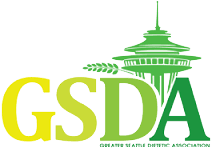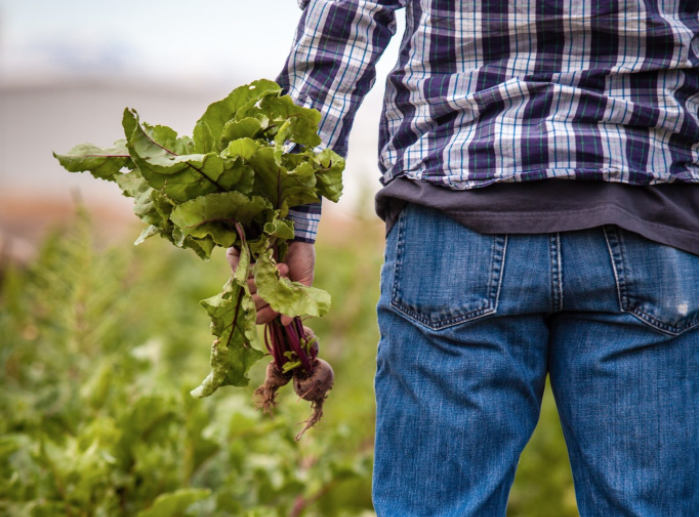From Helping to Solidarity: A Dietitian’s Understanding of the Difference Between Food Security and Food Justice
By Leah Tarleton, MS, RD
“If you have come here to help me you are wasting your time, but if you have come because your liberation is bound up with mine, then let us work together.” -Lilla Watson, Indigenous Australian or Murri visual artist, activist, and academic.
Dietitians’ Role In Food Security
Is there any doubt about the generous and supportive nature of dietitians? At our core, we are a helping profession aimed at nurturing the health of our clients and patients and ensuring they reach their highest potential through the healing power of food.
The recent murders of George Floyd, Breonna Taylor, and many other Black Americans by police have awakened a new consciousness in our country to the tragic reality of systemic racism. Appalling images of police brutality and the devastating stories of the victims, motivate many of us to ask ourselves, sometimes for the first time, how can I help?
The terms food security, food deserts, and food-insecure populations have long been part of the conversation when discussing public health disparities along racial and class lines, both in the United States and globally. 1 Nutrition professionals in all settings are asked to develop an awareness of screening techniques, understand carefully defined concepts around hunger and security, and develop evidence-based recommendations or referrals that address this important social determinant of health.
Understanding these concepts is necessary, especially when the consequence of inaction or ignorance is hunger and malnutrition. But in the wake of racial uprisings across this country, is there something that we as dietitians have been missing?
The answer to that is the concept and practice of food justice.
Dietitians and Food Justice: A Shift Towards Solidarity
In its most basic definition, to help is to give or provide what is necessary to accomplish a task or to satisfy a need.2 This is an important distinction when beginning to understand food justice. Through the lens of food security, we might say that where others are hungry, I help by ensuring they have food. However, through the lens of food justice, we uncover a particular power dynamic in the helping relationship which says: where others are food insecure, I have the power to provide something that they themselves have been struggling to get: adequate, nutritious, and culturally-appropriate food. Food justice thinking implores us to notice this power dynamic and to consider it deeply; to ask where and how it originates, who it benefits and disadvantages, and how we can be part of solving for its absence.
Defining & Discussing Food Justice
In order to move towards food justice, we must find ways to coherently define it, but not in the ways we are typically accustomed. Unlike food security, food justice cannot be broken down into neatly linear categories (e.g. very food insecure, food insecure, secure, etc.). To attempt to do so would be unhelpful at best and regressive at worst, suggesting that we are the experts on the experience of those who suffer under an unjust system.
So, how do we define food justice?
For those who do not experience food injustice, what is needed when thinking about food justice goes beyond definitions; it is a conversation. A conversation where the helper becomes the listener, and those who were in need of “help” are given license to define the experience for themselves. Furthermore, those who were previously seen as in need of help are now recognized as the expert.
Definitions [of food justice] may not address the real-life challenges of the communities they were intended to benefit, or alienate them by not addressing the concerns of a given community specifically. Individual communities want their own experiences reflected in their own definitions.3 – Tilth Alliance Oregon, Food Justice Definitions
Dietitians in Solidarity
The shift towards listening is a critical piece to engaging in any kind of justice work because when you seek to listen, understand and become curious about the experience of the oppressed, rather than aiming merely to help them, you support them in developing their own solutions to their own unique problem.
Einstein said: we can’t solve problems by using the same kind of thinking we used when we created them.
By acknowledging and centering the concept of food justice in our conversations around public health policy, or in our care or educational plans for food insecure populations, we make an important and necessary shift; a shift away from helping and towards solidarity. That is what is meant by your liberation is bound up with mine, let us work together.
In solidarity, we begin to perceive the needs and struggles of our patients and their communities in a different way: the way that they perceive them. In doing so, we can then start to become aware of the real and entrenched systemic failings that produce things like hunger and insecurity which we were blind to before.
Finally, once we are aware, we can begin to work towards deeply transformative change rather than merely addressing the symptoms or the outputs of a racist system.
A Call to Action for Food Justice Dietitians
Dietitians: keep looking out for your patients who are struggling to put food on their table. Use all of the skills, knowledge, and tools you have to find those who are dealing with food insecurity and get them what they need now. Finding food is one of our most basic needs, and one that can be unforgiving if we are unable to meet it.
But I also challenge you, as I have challenged myself, to listen and engage in a deeper relationship to these issues, in a way that goes beyond the relationship of helping.
Sit with the unwieldiness of such nebulous concepts and allow others to speak truth to them through their experience. We are all, especially the most privileged among us, in a continuous process of learning and unlearning. Be humble and patient. Most importantly of all, remember that where there is hard work there is also something to look forward to. A vision for a better world that we all can, and must, be a part of.
Portland/Multnomah Food Policy Council: Defining Food Justice 3
The Food Justice movement envisions a food system that is inclusive, community-led and participatory, without the exploitation of people, land, or the environment. It identifies and acts to remove the significant structural inequities that exist within our food and economic systems. Food Justice activists seek to establish healthy, resilient communities with equitable access to nourishing and culturally appropriate food.
References:
- Castleberry, K. and Wetherill, M., 2017. Helping the food insecure. Today’s Dietitian, [online] (5). Available at: <https://www.todaysdietitian.com/newarchives/0517p36.shtml> [Accessed 13 September 2020].
- “Help”. Dictionary.com. https://www.dictionary.com/browse/help#:~:text=to%20give%20or%20provide%20what,help%20me%20with%20my%20work. Accessed September 13, 2020,
- Rowe, Jeff. Food Justice Definitions. Tilth.org. https://tilth.org/stories/food-justice-definitions/. Updated July 6, 2016. Accessed September 13, 2020.
Further Learning and Involvement:
The author of this blog is a beginner in understanding and unraveling the concepts of food justice and racism in the food system. Please refer to the following resources to further your understanding and learn how you can become involved in the fight for food justice. We need you!
About the Author
Leah Tarleton, MS, RD is an integrative dietitian and food justice advocate. Leah began her exploration into the global food system as an undergraduate student at the University of New Hampshire. In 2017, Leah completed her Master’s in Nutrition Diagnostics and Dietetic Internship at Cox College. After a year of working, Leah left her job as a Clinical Nutrition Manager in long-term care and spent 7 months volunteering in the emergency food system where she reconnected to her food justice roots. She enrolled in the Community Alliance for Global Justice’ (CAGJ) RiseUp! Summer School Program where she participated in grassroots fundraising efforts and deepened her knowledge of concepts surrounding food justice and food sovereignty. Leah continues her advocacy work as a member of the CAGJ Food Justice Committee, Campaign Committee for the Planetary Health Collective, and the Hunger and Environmental Dietetic Practice Group where she currently serves on the social media communications team. In September 2020, Leah founded Anxiety Nutritionist her virtual private practice focusing on women struggling with anxiety. She is on a mission to share her personal struggle with anxiety and help women from all walks of life use food as medicine to heal by transitioning to a plant-based lifestyle.

